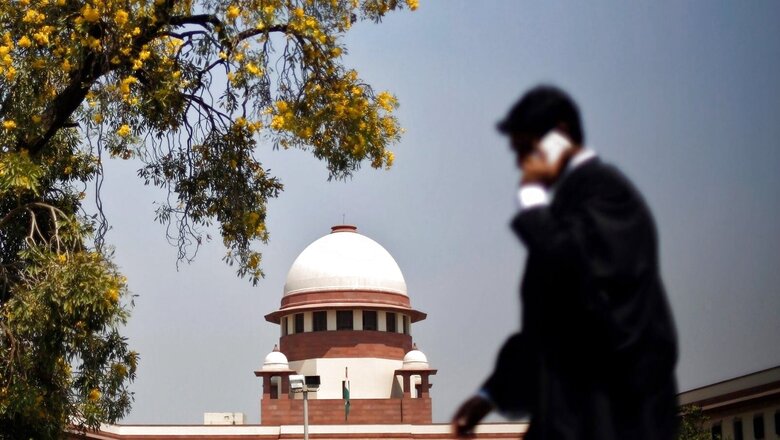
views
The Tribunal Reforms Act, 2021, is the latest flashpoint between the government and the judiciary after the Supreme Court criticised the Centre for its failure to fill up vacancies in tribunals, saying many of them are on the verge of becoming defunct due to the government’s laxity in appointments. An irate court challenged the government to produce material showing its reasons for introducing the bill, which abolishes nine appellate tribunals and revives provisions of an ordinance struck down by the Supreme Court, in the Parliament.
News18 breaks down the Act, the standoff between the government and judiciary and the way forward:
What does the Act say?
The Tribunal Reforms Act, 2021, replaces a similar ordinance promulgated in April 2021 that sought to dissolve eight tribunals that functioned as appellate bodies to hear disputes under various statutes, and transferred their functions to existing judicial forums such as a civil court or a High Court.
Finance Minister Nirmala Sitharaman introduced the bill in Lok Sabha and it was passed on August 3 amid ruckus by the Opposition over the Pegasus snooping row.
According to the Act, chairpersons and members of the tribunal being abolished shall cease to hold office, and they will be entitled to claim compensation equivalent to three months’ pay and allowances for their premature termination. It also proposes changes in the process of appointment of certain other tribunals.
What are the modifications?
The Act not only provides for uniform pay and rules for the search and selection committees across tribunals but also removal of tribunal members who have been adjudged as insolvent, convicted of an offence which involves moral turpitude; or has become physically or mentally incapable of acting as such Chairperson or Member. Chairpersons and judicial members of tribunals are former judges of High Courts and the Supreme Court.
Which are the tribunals being dissolved?
Among the key ones are the Film Certification Appellate Tribunal (FCAT) under the Cinematograph Act, 1952; the Intellectual Property Appellate Board under the Copyrights Act, 1957; and the Customs Excise and Service Tax Appellate Tribunal.
Why is the judiciary irate?
The move brings greater accountability in the functioning of the tribunals but also raises questions on the independence of these judicial bodies by giving the government a foot in the door in the process. The Chief Justice of the High Court, who would head the committee, will not have a casting vote.
A three-judge Bench led by Chief Justice of India NV Ramana put the government on the dock about the complete absence of material justifying the Act and also the lack of proper debate in the Parliament before it was made into law.
“Can you show us the records giving the reasons for which the Bill was placed in the Parliament? Can you show us what was discussed about the Bill before it was passed?” Chief Justice Ramana asked.
Chief Justice Ramana pointed out that despite the Supreme Court’s observations in an August 6 hearing and production of a note showing over 240 vacancies in key tribunals where thousands of cases were pending, not a single appointment had been made by the government in any of these tribunals till date.
What does the government say?
According to the government, analysis of data of the last three years has shown that tribunals in several sectors have not necessarily led to faster justice delivery and they are also at a considerable expense to the exchequer. This has led to the decision to rationalise the functioning of tribunals, a process that it began in 2015. India now has 16 tribunals including the National Green Tribunal, the Armed Forces Appellate Tribunal, the Debt Recovery Tribunal among others which also suffer from crippling vacancies as the SC has noted.
What happens to cases pending before the dissolved tribunals?
These cases will be transferred to High Courts or commercial civil courts immediately. There are, however, fears that if taken to high courts, the lack of specialisation could be detrimental to the decision-making process.
Read all the Latest News, Breaking News and Assembly Elections Live Updates here.
















Comments
0 comment